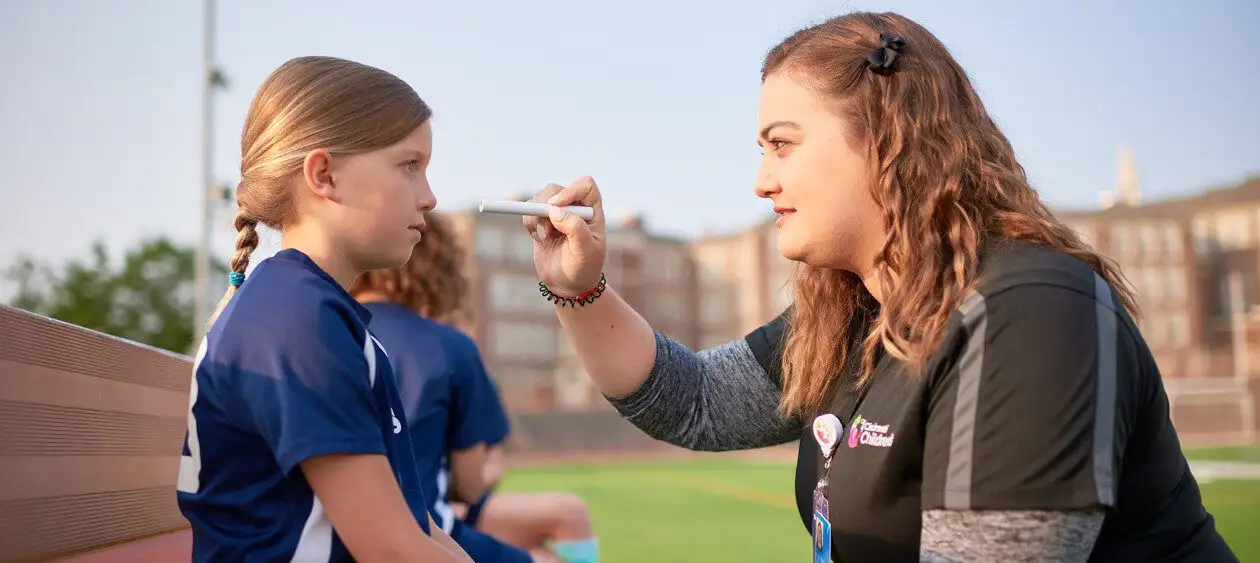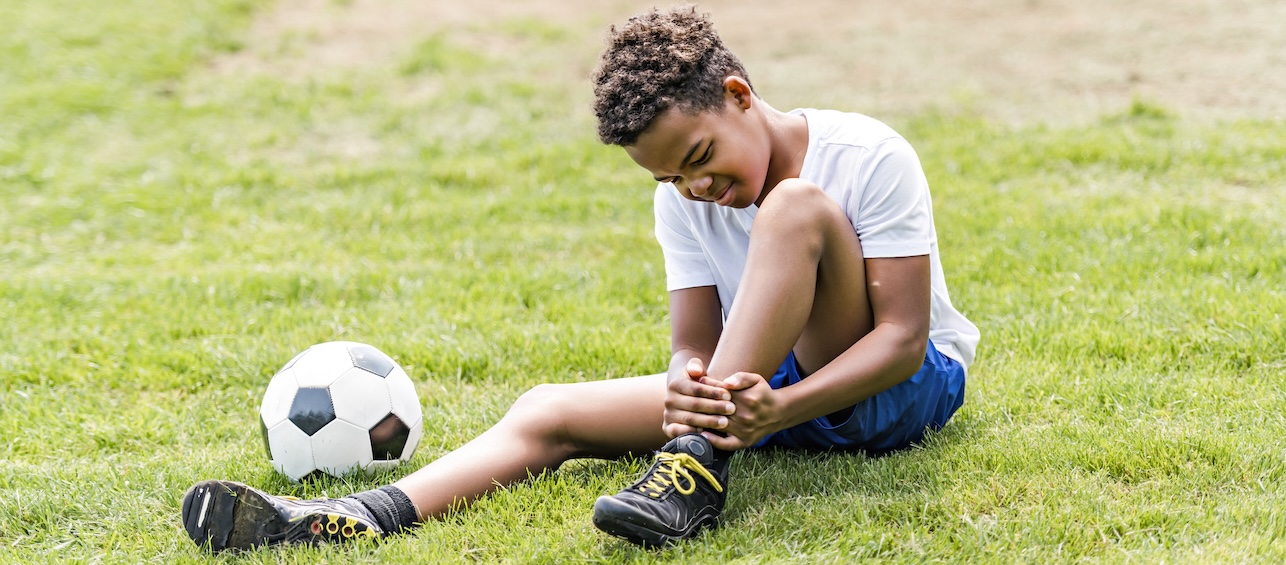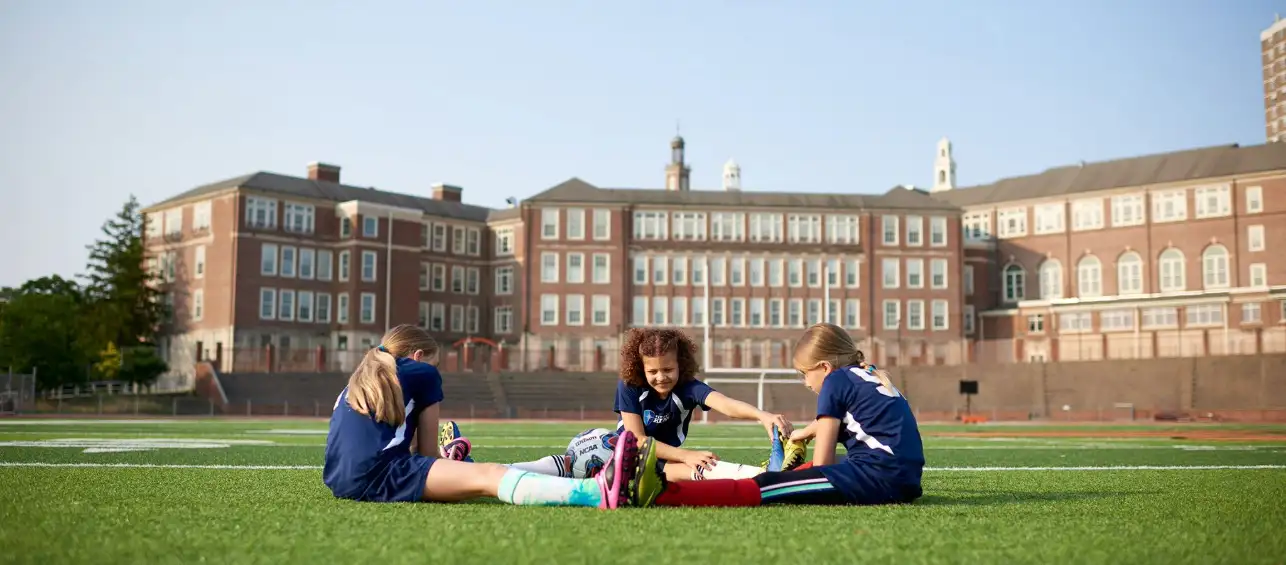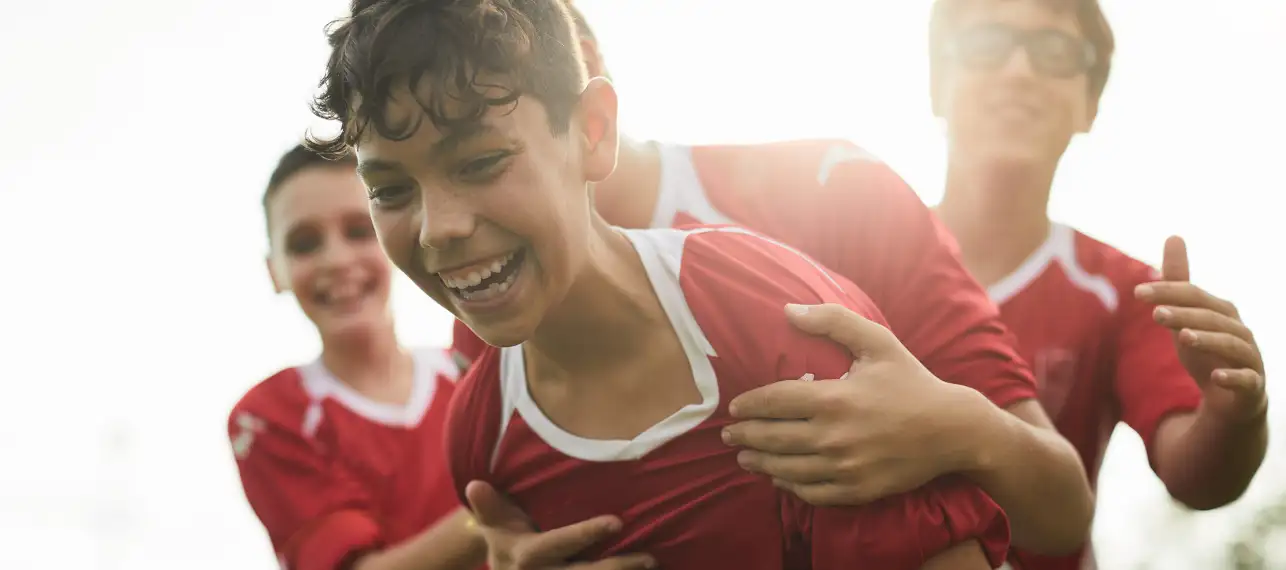Most parents are aware that concussions occur in kids as well as adults — especially if they play contact sports — but there are also a lot of misconceptions out there about concussions. Whether it’s what happens in the brain during a concussion, when symptoms occur, or how long it can take to recover, I’d like to help clarify some of these so that concussions may be better recognized and optimally treated to aid in recovery.
8 Misconceptions About Concussions in Kids
Misconception #1: Concussions happen most often during collision sports, like football and hockey
Concussions DO happen during collision sports, such as football and hockey. However, they can also occur during everyday life, as well as contact sports such as basketball, soccer and other activities with less contact. In younger kids (ages 0-17), falls are the #1 cause of emergency room visits for head trauma. A general rule of thumb is that increased “exposure” in a sport, higher level of play, the more frequent play, the more likely they are to incur a concussion.
Misconception #2: All concussions are recognized and treated
There is a wide array of concussion symptoms in kids, from the timing of symptom onset following impact, to the severity and number of symptoms. As a result, not all concussions are easily recognized. Symptoms can begin anywhere from minutes to days following the blow, and they can range from very mild to more severe. This is why it is important to monitor kids for symptoms following an incident of head trauma, even if no symptoms were initially present and to monitor those with a concussion frequently for changes in their symptoms.
Misconception #3: Kids need to lose consciousness to have a concussion
In that same vein, I’d like to point out that kids DO NOT have to lose consciousness to have a concussion. Fewer than 10% of kids lose consciousness during a concussion. In other words, if your kids stay alert following impact, this does not mean they are out of the woods. Continue to monitor them over the next week for concussion symptoms. Other common, but lesser-known symptoms observed in toddlers and younger children include irritability and changes in mood. If they are acting differently or have become more emotional than normal, this could be a sign of injury. You can view a complete list of concussion symptoms on our website.
Misconception #4: Children recover as quickly as adults
Younger adolescents and children actually recover from concussions slower than adults. In fact, most adults will recover within the first week. About 70% of younger kids will take a month to recover from their injury. Another 20-30% of kids will take three months to recover from a concussion.
Several theories exist as to why this is the case. These include that younger brains are biochemically different than adult brains and they do not reach maturity until their early 20s. Also, skeletal changes such as muscle mass, neck strength, and sports techniques (such as the biomechanics of tackling) may also play a role in this noted difference.
Misconception #5: What happens to the brain during a concussion
It is well known that during a concussion, the brain is jostled inside the skull. But what is lesser known is the functional disturbances that also occur in the brain. During a concussion, there is a biochemical cascade. Electrolytes get shifted and this creates an energy imbalance within the brain. It takes more energy than normal to perform routine functions. This energy imbalance and decreased function occurs at the cellular level. These cellular inefficiencies can lead to slower processing, poor performance, and “unmasking” of underlying tendencies or previously controlled medical conditions such as ADHD, mood concerns, or headache.
Misconception #6: All Concussions look the same
This is not true. All concussions are different — between kids and even within the same kid. If your child has had a concussion before and had a simple recovery, this does not mean that the second one will be similar. Further, once they’ve had a concussion, they’re four times more likely to have another injury during their lifetime. And in that first year following a concussion, we see higher rates of injury versus someone who has never had a concussion.
Misconception #7: Kids should be woken up frequently following a concussion
It’s a misconception that kids need to be kept awake, or woken up every hour or couple of hours, following a concussion. Yes, sleep is often disrupted after a concussion, but in general they need their rest to help recover. In fact, it is okay to let them sleep more than normal initially after an injury, as long as they are arousable and not lethargic.
Misconception #8: Returning to activity following a concussion is straightforward
Recovery from concussion needs to be individualized to the child’s medical history, injury history, and pattern of symptoms. Specific rigid time frames do not adequately reflect recovery. In general, progression to routine daily activity which includes walking, are encouraged as symptoms improve. This is followed by gradual increases in cognitive activity and then physical activity as symptoms continue to improve. It is important to note that some kids can initially feel better but then develop worsening symptoms as they begin to increase their activity levels. This means that the workload is likely too high and the progression should be more gradual.
This is why it’s important to be followed by a brain injury expert over time. We will conduct a full neurologic exam, and have specific tests and measures to screen for symptom patterns. This allows us to track symptom progression and recovery, and ultimately give data-based guidance on when and how to return to play and activities. That said, there is not one test that verifies when kids are fully recovered; it also depends on many personal and independent factors.
If you have concerns about your child’s concussion or recovery, reach out to a medical professional for further guidance. Most of these injuries do not need to be evaluated in the emergency room. Red flags include severe or worsening headache; repeated vomiting; not being able to move arms or legs; and lethargy or severe confusion, such as not recognizing people and places. These would require a more emergent evaluation. We are here to support your recovery and answer any questions that you may have.
To learn more about our Brain Recovery After Injury (BRAIN) Health and Wellness Center, please call 513-803-HEAD (4323) or fill out an online form for more information.






